Hear me out but… the Matrix sequels are actually genius (if you imagine there is no real world)
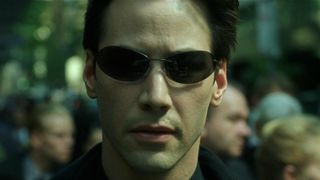
An unfathomably intelligent society of sentient machines has dedicated hundreds if not thousands of years to imprisoning the human race in a computer simulation so nuanced as to be indistinguishable from reality. Regardless, having had consistent trouble with a small percentage of humans waking up to the lie, the machines have gone through several versions and treatments of the simulation in order to make it more secure. In their infinite, logic-driven intelligence, based on countless generations’ study of human psychology, they tried a version with actual vampires and werewolves (for added believability), but have now settled on the more sensible system of manipulating a false prophecy narrative at the point of each (now accepted) system failure in order to empower a chosen individual as a Superman Jesus figurehead for the free humans.
They then push him toward the Matrix’s architect program, and encourage him to return his specially imbued code to the source program, rebooting the Matrix while allowing those outside to die, and letting him creepily choose a small number of (presumably the sexiest) humans with which to repopulate the real world outside the simulation, and repeat the cycle anew. This, despite the fact that the machines can grow a million humans a minute in jars. And, you know, there’s the inevitable inbreeding horror to consider. And all of this is based on the assumption that the chosen one will do what the machines want at the critical moment, because why not, eh?
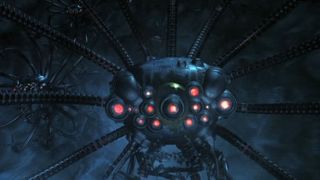
Oh, and apparently these omnipotent weavers of reality itself, with their single-minded focus on control and order, have lost countless rogue ‘Exile’ programs within the simulation, many of whom are actively helping the human rebellion, or have independent agendas all of their own. Usually defective or obsolete, these programs have somehow avoided deletion by the all-powerful system by simply saying ‘No, don’t wanna’, and now one of them is threatening to take over the entire planet, and apparently there are no safeguards against this kind of thing, nor was there any way to predict it, despite five iterations of the Matrix/messiah/reboot cycle before this one.
Yeah, the Matrix sequels are inarguably bollocks. But I ask you today, friends, what if they secretly weren’t?
Look, I know, it’s hard to excuse that crap. After the first movie struck an incendiary balance of cutting-edge, anime inspired, cyberpunk action aesthetic and (comparatively) smart, open-ended existential pondering – while setting up a universe of endlessly explorable narrative potential - both Reloaded and Revolutions took a big, clumsy hammer to everything that once made The Matrix exciting. And they kept bashing. Oh boy did they bash. If they’d been a dwarf, they would have been Bashful. If they’d been a show about lawyers, they’d have been Franklin and Bash. If they were a video game, they’d be Bishi-Bashi Special.
But we can repair them.
Welcome to the real world. Or is it?
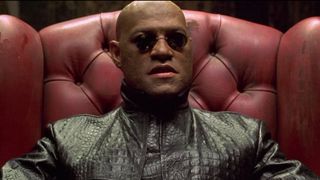
Stick with me. We can make this good. We don’t even need to rewrite anything. It’s actually possible to make the entire Matrix trilogy brilliant by simply using the awesome power of imagination. We just need to assume that all of the stuff outside the Matrix is also a computer simulation.
Sign up for the Total Film Newsletter
Bringing all the latest movie news, features, and reviews to your inbox
Now, the idea that Zion and ‘the real world’ might actually be a secondary, back-up Matrix is nothing new. We were theorising about it before the sequels ever happened. It just made sense. Because why would a planet-dominating species of hyper-advanced, hyper-efficient, control-minded AI tolerate a steady drip-feed of human escapees? Why would the machines let the Zion forces steadily amass and spread the truth, relying only on sporadic fist-fights as a means of keeping charge of the situation, until it was deemed time to take yet another massive gamble on a staggeringly contrived plan? For an endlessly evolving, unfathomably intelligent civilisation of ruthless machine logic, the strategy makes not a lick of sense. For a regime built around the idea of controlling the human populace as top priority, the machines are really bad at controlling anything.
So of course the real world was a simulated safety net, put in place to create an illusion of freedom for those able to break out of the main Matrix. After all, the key questions raised in the first film centre around the ideas of the human inability to accept happiness, and whether hardship in freedom is better than bliss in captivity. So obviously a VR dystopia, in which they thought they’d already won, was the perfect place to keep the more rebellious humans subdued. Misery-addicted humanity would lap it up like a thirsty dog at a toilet.
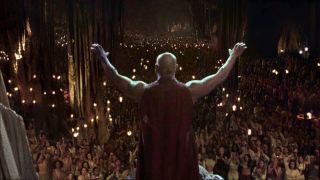
But this idea doesn’t just fix the central story issue. The sequels are awash with half-formed gibberish across the board. They’re like a sugar-rushing teenage nerd, whose newfound passion for high-concept sci-fi is directly proportional to the badness of his ideas. What if programs could be people too? What if you could hack humans? What if you could reboot reality? What if Matrix powers worked in the real world? But if we just brute-force the idea of a second Matrix into canon, all of that bullshit is absolute genius.
Take Agent Smith’s nonsense, for instance. Because there’s no way the machines would be stupid enough to allow such a massive security flaws into the Matrix. And there’s no way they wouldn’t have the facility to stop him. Ditto for all the other renegade, Exile AIs with no dedication to the machine cause. The Oracle, who actively helps red-pilled humans. The Merovingian, who helps anyone he can work to his advantage. His wife Persophone, who will betray the machines’ needs out of simple marital disgruntlement. There’s no justification for these guys existing, let alone being tolerated.

I can actually buy Smith’s ability to take over other programs. He and they are both just code after all, and code can be rewritten. And his taking possession of humans jacked into the Matrix is also justifiable at a stretch. We know that the machines use a physical interface to effectively override human sensory input with data pulled from a real-time world simulation, so it’s just about logical that a component of that simulation might be able to override human perception to the point of convincing it to change its behaviour. But when Smith starts taking control of humans outside of the Matrix? Bullshit. At that point the movies are stretching the logic of their sci-fi conceits to the point of magic, and the whole thing loses integrity.
Unless of course, Smith isn’t actually breaking out into the real world at all, but just into another part of the Matrix, via a human host who is also unknowingly still jacked in. Then, Smith’s abilities make sense, and suddenly the Exiles are no freer than anyone else, their supposed dealings with those outside the Matrix actually nothing of the sort. The machines are playing a vast (but efficiently simple) gambit of Machiavellian misdirection to quietly keep all rebels under control, regardless of their origin. It’s the Matrix’s illusion of freedom blown up to a whole new level of intelligence and effectiveness.
Grounding the fairytale, and bringing back the meaning
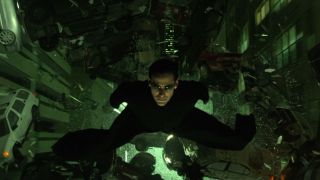
It’s the same deal for the colossal bullshit sandwich that is Neo’s eventual ability to hack reality outside of the Matrix. He can shut down machines via force of will. He can see the world, despite being blind, by sensing its energy vibrations. He can do a lot of what he can do in the Matrix, but in the real world. And how can we possibly justify that horsecrap? Because he still is in the Matrix. Ditto that relentlessly tiresome sequence in the subway station at the beginning of Revolutions. A poorly explained virtual environment that apparently acts as a transitional point between the Matrix and the machine city, the station is presumably a sort of interactive loading screen, as programs move between the Matrix and more tangible systems outside. And Neo is somehow in there without being jacked into anything. Unless, of course, he’s jacked in all the time. Just like everyone is.
The idea of a second-layer Matrix strategy even makes the ending a great deal more satisfying and sensible. Because the surface level reading only compounds the machines’ incapability. Having totally lost control of the Smith situation, the AI overlords arrogantly refuse to accept their mistake – hardly analytical machine thinking – and then begrudgingly agree to Neo’s offer of a truce in return for his defeating the Agent by way of suicidal sacrifice.
None of this is in step with the omnipotent, masterful power that supposedly put the machines in control of Earth in the first place. All of it is the result of their own dumb, decidedly human error. And with the machines also agreeing to release any human from the Matrix who desires freedom, they effectively screw themselves in the long-term. Let’s not forget that the Matrix only exists because the machines literally need it to survive. On the surface, the ending of Revolutions is less the result of Neo’s ability or agency, and more the culmination of the machines suddenly getting really stupid and really desperate. And that’s just not gratifying.
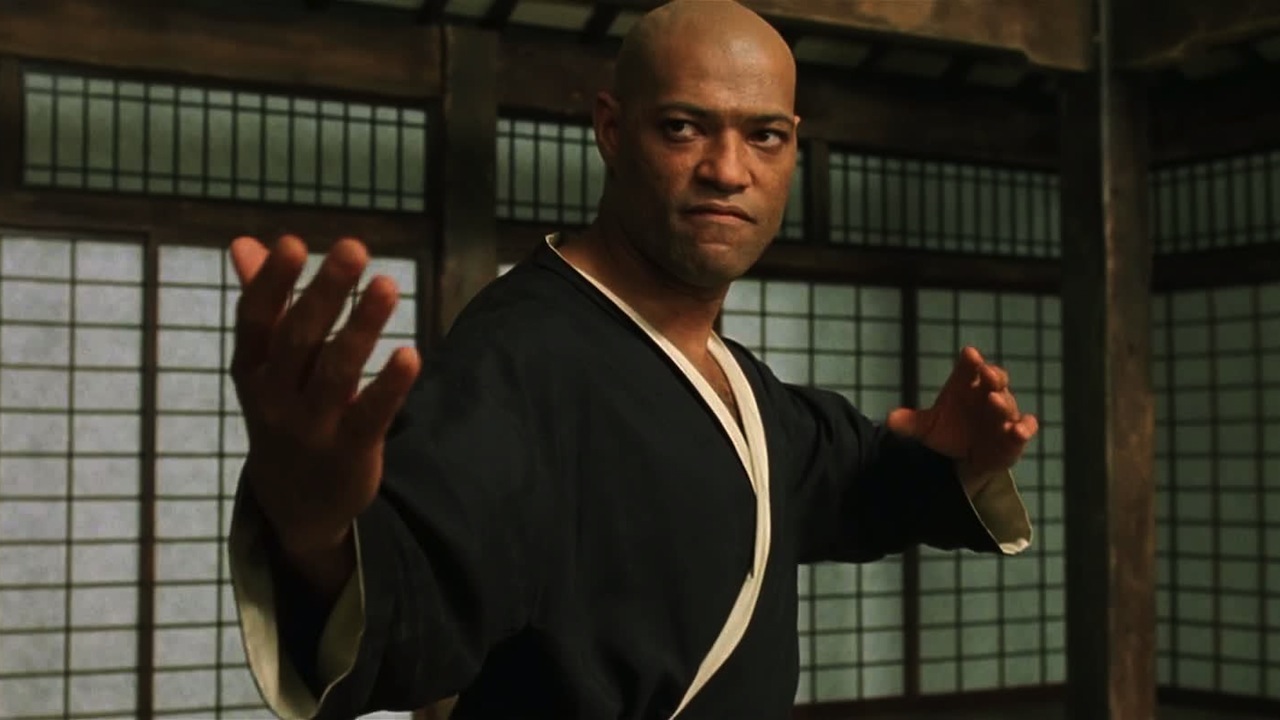
But if the truce is just the crescendo of the scam? If the machines have manipulated Neo into thinking they’re on the ropes, so that he’ll agree to his own death under the misapprehension that he’s saving humanity? When, in fact, humanity will remain unwittingly plugged in whatever he does? Then we have a hell of a plan, entirely worthy of the adversaries the machines are made out to be in the first film. They quell the uprising, while giving the humans even more reason to think that they’ve won. They get rid of the rebellion’s figurehead, while actually making humanity happy about his romanticised, messianic death – a genuinely good show of the machines’ supposed expertise in human psychology, as they give us exactly the kind of story we like to believe, as they’ve always strived to. They even make themselves out to be benefactors, appearing to have disregarded their own best interests in favour of saving everyone from Smith, when in fact Smith was never really a threat to anyone.
Meanwhile, humanity remains plugged in, the Matrix hasn’t lost a single power source aside from those who’ve died, future losses will be greatly reduced, and most importantly, the original question of whether naïve, false happiness is better than true freedom remains as potent as it ever was. More so, in fact. The question raised in the first movie has been revisited and compounded in the series’ conclusion, making for a powerfully resonant, complete arc over the course of a cohesive and purposeful trilogy. And we have a new, better ending that leaves things ambiguous, and reinstates the endless scope for exploration inherent to the first film’s concept and conclusion.
Heck, if everything plays out inside the Matrix, via a deliberately dumb set-up specifically designed to make humans happy, that even sort of justifies all the cartoony action in Zion, and the silly, floating-head video game final boss thing that Neo talks to at the end. Just about. But the main point is, the whole Matrix trilogy is now about something. And it’s actually, finally, good.
Hear me out is GR's regular exploration, extrapolation, and expansion on the biggest and best movie fan theories and alternative takes around. From whole new interpretations, to critical angles you hadn't thought of, it's your home for the weirder side of film. Looking for more? Check out last week’s case for why Titanic is secretly a Terminator movie.
Most Popular


